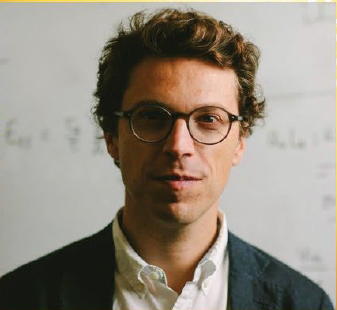Modern Perspectives and Challenges in Magnetic Reconnection
Modern Perspectives and Challenges in Magnetic Reconnection
Date and Time
Location
Hosts
Registration
-
 Add Event to Calendar
Add Event to Calendar
Loading virtual attendance info...
- Ann Arbor, Michigan
- United States 48109
- Room Number: Room 1018 Dow
Speakers
Prof. Nuno Loureiro of Massachusetts Institute of Technology, Plasma Science and Fusion Center
Modern Perspectives and Challenges in Magnetic Reconnection
Magnetic reconnection is the reconfiguration of the topology of the magnetic field in a plasma. It is associated with the efficient conversion of magnetic energy, resulting in, for example, solar flares, and the generation of suprathermal particle populations. Reconnection is present throughout the magnetized universe: from lab plasmas and the Earth’s magnetosphere to magnetar flares and gamma-ray bursts. It is thought to be a key ingredient of plasma turbulence, determining much of the energy dissipation.
The importance of reconnection across multiple areas has meant that it has been the subject of investigation over the last 70 years. Broadly speaking, the main questions are: what triggers reconnection (onset problem); how fast it can proceed (rate problem); and how is the magnetic energy divided amongst the different possible channels (energy partition problem). While much progress has been made, investigations are hampered by the fundamental nonlinear character of the problem and its intrinsic multiscale nature: conspiring to make analytical and numerical calculations extremely challenging, and prompt researchers to seek to simplify the problem as much as possible.
This talk reflects on these challenges, how they have constrained the research that has been done to date, and possible theoretical frameworks to move the field forward.
Biography:
Nuno F. Loureiro is Director of MIT’s Plasma Science and Fusion Center, Professor of Nuclear Science and Engineering and the Herman Feshbach (1942) Professor of Physics at MIT. He majored in Physics at Instituto Superior Técnico in Lisbon (Portugal) in 2000 and obtained a Ph.D. in Physics at Imperial College London (UK) in 2005. He did postdoctoral work at the Princeton Plasma Physics Laboratory between 2005-07, and at the UKAEA Culham Centre for Fusion Energy between 2007-09. Prior to joining MIT in 2016 Loureiro was a researcher at the Insti-tute for Plasmas and Nuclear Fusion at IST Lisbon. He is the recipient of the American Physical Society (APS) Thomas H. Stix Award for Outstanding Early Career Contributions to Plasma Physics Research in 2015, and of an NSF CAREER Award in 2017. Loureiro was elected APS Fellow in 2022.
Loureiro has an active interest in several fundamental aspects of magnetized plasma dynamics, such as magnetic reconnection, magnetic field generation and amplification, confinement and transport in fusion plasmas, and turbulence in strongly magnetized, weakly collisional plasmas.
An IEEE Southeastern Michigan Section event. All are welcome. Consider becoming an IEEE member if such similar events are of professional/academic interest to you


